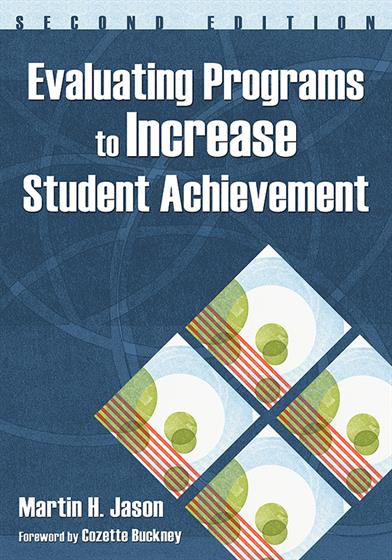Foreword by Cozette Buckney
Acknowledgments
Preface
1. Perspectives on Program Evaluation
Overview
How Program Evaluation Contributes to School Improvement
Benefits of Site-Based Program Evaluation
Goals of Program Evaluation
Two Evaluation Methods
Assessing Program Processes
Linking Evaluation With Program Improvement
A Concluding Note
Chapter Highlights
2. How Program Evaluation Contributes to a Learning Organization
Overview
The Spirit of a Learning Organization
The School as a Learning Organization
Reflective Practice
Linking the Parts of the School Organization for Improved Performance
Applying a Systems Approach to Increase Student Achievement
A Concluding Note
Chapter Highlights
3. Using Program Evaluation to Improve the Curriculum — A Developmental Approach
Overview
Compatible Evaluation Methods
The Problem of Confounding
Internal Validity
Some Further Threats to Internal Validity
A Concluding Note
Chapter Highlights
4. An Experimental Approach for Evaluating Programs
Overview
Internal Validity—A Review
Building Control Into an Experiment
Random Assignment
Experimental Designs
Deciding Whether to Use One or Two Groups in an Evaluation Study
External Validity
A Concluding Note
Chapter Highlights
5. Program Evaluation Through Collaboration
Overview
Why Have an Evaluation Team?
Team Composition
Factors for Principals to Consider in Establishing the Evaluation Team
Forming an Evaluation Team
The Team in Operation
A Concluding Note
Chapter Highlights
6. Measuring Program Outcomes
Overview
Quantitative and Qualitative Data
Comprehensive Evaluation
Validity and Reliability of Evaluation Data
Validity
Reliability
Perspectives on Authentic Assessment
A Concluding Note
Chapter Highlights
7. The Evaluation Process: Phases 1, 2, and 3
Overview
Phase 1—Describing the Program
Phase 2—Providing Direction for the Evaluation
Phase 3—Obtaining Information to Answer Evaluation Questions
Chapter Highlights
8. The Evaluation Process: Phases 4, 5, and 6
Overview
Phase 4—Analyzing Data to Assess a Program’s Impact
Phase 5—Evaluating the Program’s Effectiveness and Offering Recommendations for Its Future Development
Phase 6—Writing the Evaluation Report
Chapter Highlights
9. Writing the Evaluation Report
Overview
Format and Content
What the Evaluation Report Represents
Chapter Highlights
10. Assessing the Evaluation Project
Overview
Purposes of Metaevaluation
Formative Metaevaluation
Summative Metaevaluation
A Concluding Note
Chapter Highlights
11. Revisiting the Principal’s Leadership Role in Program Evaluation
Overview
The Multidimensional Responsibilities of the Principal in Program Evaluation
Attitudes of Principals Toward Assessing Programs
Beyond the Technical
Principals’ Self-Assessment
A Concluding Note
Chapter Highlights
Appendix. A Mini-Guide for the Evaluation Team Leader
References
Index


